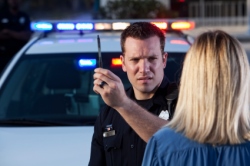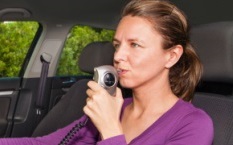After a DUI arrest in Washington State, there will be mandatory court dates and an automatic driver’s license suspension (unless you contest it) with the Department of Licensing (DOL). DOL consequences are independent of anything that occurs during the DUI criminal case.
Quick Guide for Contesting a DUI License Suspension
- From the date of arrest, you have 7 days to request a DUI hearing (to contest the license suspension). If a hearing is not requested, the license suspension will go into effect 60 days after the arrest date. The license suspension can be anywhere from 90 days to 2 years for a first offense.
- The hearing can be requested online or by mail, along with the $375 hearing fee. There is also an option for a hearing fee waiver if you are found to be indigent.
- If the hearing request is made within the allowable time frame, the DOL will set a date for a DUI hearing with one of its hearing examiners. The hearing examiners are employees of the DOL and are not judges, but they are supposed to be impartial in their decision making.
- The DUI hearing will take place over the telephone. The hearing examiner will only consider four issues: (1) whether you were under lawful arrest, (2) whether the officer had reasonable grounds to believe that you had been driving or were in actual physical control of a vehicle while under the influence of liquor or drugs, (3) whether you were properly advised of the Implied Consent Warnings, and (4) whether you were over the legal limit or refused the breath test.
- After the hearing is over, the hearing examiner will either make a decision on the hearing date or mail out a decision after the hearing.
- Once a decision has been made, you may appeal it within 30 days through the superior court in the county that you were arrested in.
- If the Department of Licensing maintains the suspension, you may be eligible to drive with an ignition interlock device in your vehicle for the duration of the suspension. You should not apply for an ignition interlock license without first consulting with an attorney, since the right to a DUI hearing and appeal will be waived once an ignition interlock license is issued.
The Role of An Attorney at the DUI Hearing
It is a good idea to be represented by an attorney at this hearing. Your lawyer may request that the police officer or other witnesses be subpoenaed before the hearing. They can also question witnesses, present evidence, and offer testimony during the hearing.
At Beckwith DUI Law, we fight for clients at their DUI hearing and throughout their criminal case. We have a proven track record in the courts of King, Pierce, and Thurston County, including Tacoma, Seattle, Bellevue, Puyallup, and Olympia, WA. Contact us today for a free consultation.
[fancy_list style=”triangle_arrow” variation=”slategrey”]
[/fancy_list]
 In Washington State, DUI penalties are enhanced for drivers who refuse to take a breath test at the police station. Under the Implied Consent Law, a person who drives within WA State is considered to have consented to a blood or breathalyzer test if he or she is arrested for DUI.
In Washington State, DUI penalties are enhanced for drivers who refuse to take a breath test at the police station. Under the Implied Consent Law, a person who drives within WA State is considered to have consented to a blood or breathalyzer test if he or she is arrested for DUI. In Washington State, it is a crime for a person who is under the age of 21 to drive a motor vehicle with a blood alcohol concentration of .02 or over. The crime is punishable by up to 90 days in jail and a $1000 fine. If convicted, a person will face the maximum penalties and may be required to report to probation, complete an alcohol and drug assessment, and complete any recommended follow up treatments. An underage person arrested for DUI (Minor DUI) will also face a license suspension with the Department of Licensing.
In Washington State, it is a crime for a person who is under the age of 21 to drive a motor vehicle with a blood alcohol concentration of .02 or over. The crime is punishable by up to 90 days in jail and a $1000 fine. If convicted, a person will face the maximum penalties and may be required to report to probation, complete an alcohol and drug assessment, and complete any recommended follow up treatments. An underage person arrested for DUI (Minor DUI) will also face a license suspension with the Department of Licensing. If your license was suspended administratively (as a result of a Department of Licensing Hearing) or through the courts (as a result of a criminal conviction), you may be eligible to apply for an Ignition Interlock License so that you can continue to drive during your suspension.
If your license was suspended administratively (as a result of a Department of Licensing Hearing) or through the courts (as a result of a criminal conviction), you may be eligible to apply for an Ignition Interlock License so that you can continue to drive during your suspension.